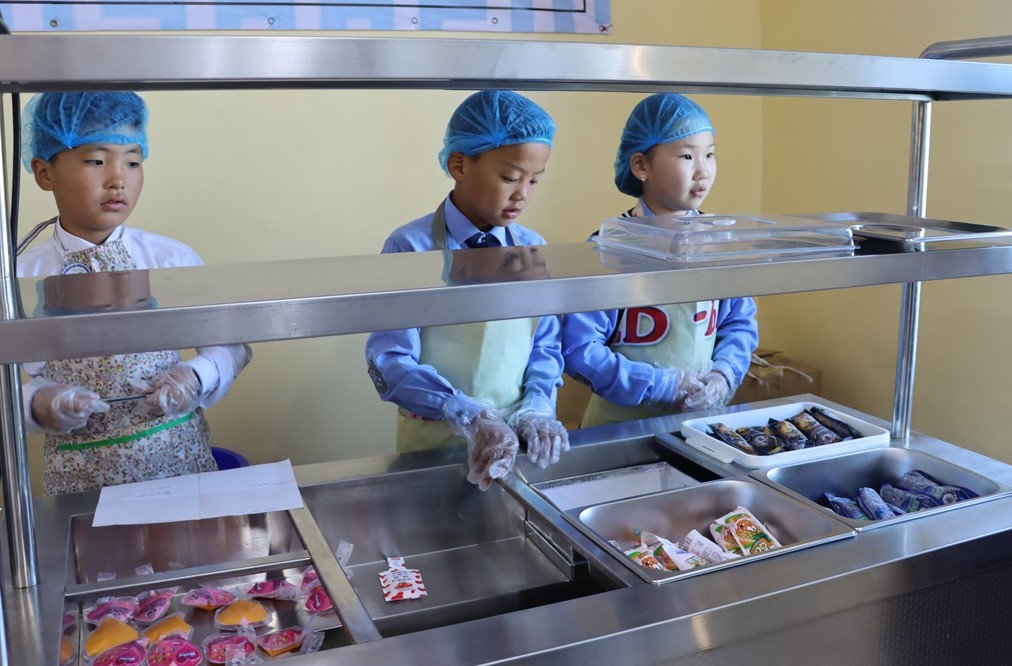Children in Mongolia swap herds for curds as climate change threatens traditional way of life
The skills the children learn could make a big difference to their futures in Mongolia where 40 % of the country’s 3.4 million people rely on herding but where harsh winters are occurring more frequently due to the climate crisis – putting traditional ways of living at risk.
ULAANBAATAR, 12 May– Children dressed in blue hair nets, aprons and gloves are learning to make their own yogurt at a school in Mongolia’s central Uvurkhangai province, as part of a program to build entrepreneurial skills in rural communities whose traditional ways of life are being threatened by climate change.
The program – which is fully integrated into the national school curriculum – uses math, language and health classes to teach children to both make and market their yoghurt. In health class, the children learn the nutritional benefits of yoghurt, for product promotion; in language class, the children learn how to design advertisements; and in math class, the children learn how to calculate a profit margin.

The skills the children learn could make a big difference to their futures in Mongolia where 40 % of the country’s 3.4 million people rely on herding [1] but where harsh winters are occurring more frequently due to the climate crisis – putting traditional ways of living at risk.
Chimeg*, 11, one of the children who participated in the programme at the school in Uvurkhangai, said:
“We learned how to work as a team. We learned how to keep records and manage our time. We also learned how to make yogurt, how to measure ingredients, and how to explain them while distributing the juice to other children.”
The scheme is part of an entrepreneurship project by Save the Children funded by the Government of Japan and managed by the World Bank which helps children in Mongolia’s rural communities gain the skills needed for success in school and in the labor market.
Since starting in 2022, the program has trained over 8,700 children and youth in entrepreneurship skills and knowledge. This year alone, about 80% of the 1,186 children in Chimeg’s school have participated in the scheme.
Last year, Mongolia experienced its most severe Dzud – or severe winter – in five decades. That hurt the livelihoods of about 180,000 people, including over 80,000 children, dealing a further blow to one of the world’s last remaining nomadic cultures.[2]
Carving out a living on what is left of Mongolia’s devastated landscape means the country’s remaining 800,000 nomadic herders are being forced to move to urban sprawls in search of work which will plunge some families into poverty and unemployment, while in rural areas youth who are at risk of or have already dropped out of school continue to face challenges entering the labor market because of a lack of transferable skills.[3]
Bayan-Altai Luvsandorj, Country Manager and Representative of Save the Children Japan in Mongolia said:
“The climate crisis has brought devastation to Mongolia’s pasturelands and to the livelihoods of herding families and their children. Who knows what will be left of the traditional ways of living? That’s why we must help to empower children to develop a sense of entrepreneurship. This isn’t just about skills – it’s also about building resilience. Its about helping children in Mongolia to help themselves and future-proof their careers.”
Save the Children has worked in Mongolia since 1994 running programmes focused on education, child protection, health, and addressing child poverty and child rights governance as well as providing humanitarian assistance to herder households affected by dzuds, floods and sandstorms.

